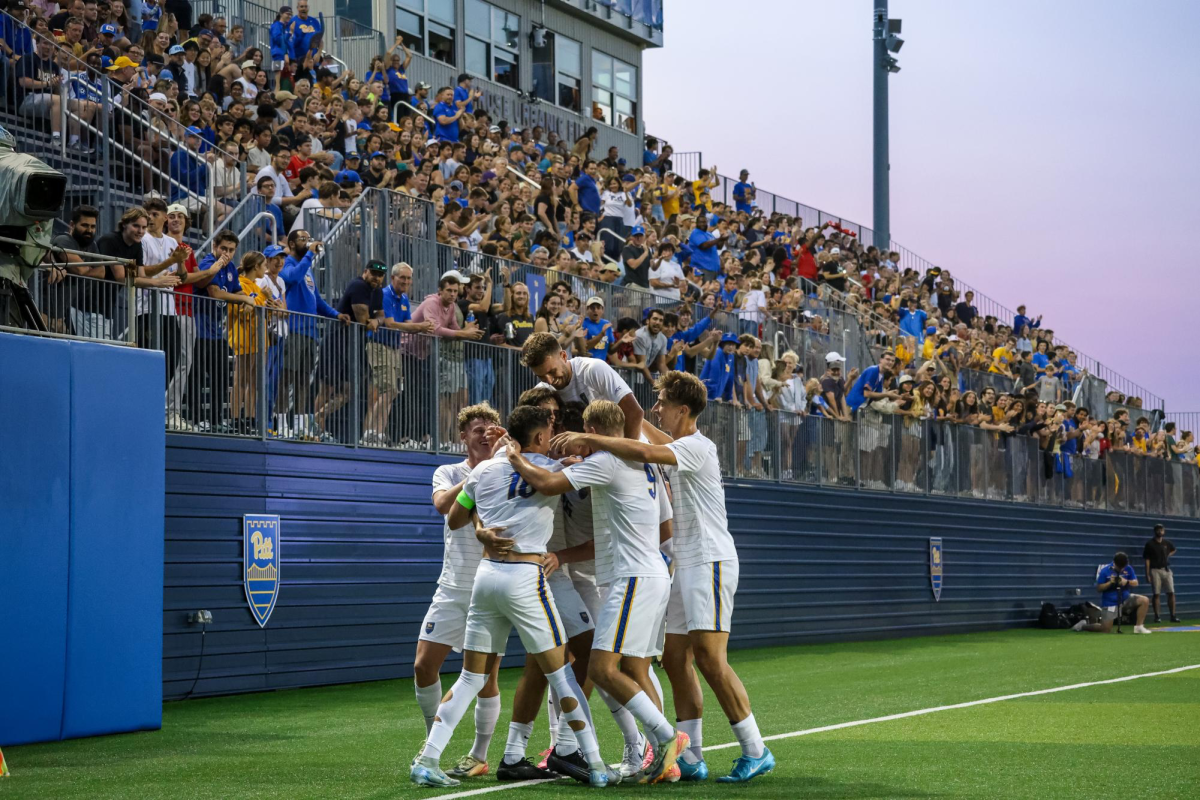Now down to their last strike, the time has come for 2024 Pitt men’s soccer to find their identity. Are they the group that ran opponents off the pitch and won the first 10 of their 11 games? Or are they the team who crawled to the finish line — held scoreless in their last two matchups?
Only time will tell. Following a disappointing end to the season — dropping three of the final five regular-season contests, the Panthers plummeted from the No. 1 ranked team in the country to No. 9. Despite their recent performances, the team (12-5, ACC 6-2) earned the second overall seed in the NCAA tournament.
As the top seed in the ACC tournament, Pitt had the opportunity for redemption, and a conference tournament run would have wiped away the memories of the season’s subpar finish. Still, the Panthers disappointed their home crowd, dropping their opening match to Virginia 2-0.
The team appeared disjointed, lacking chemistry and even focus during the match. The Panthers’ current form served as a far cry from the once-dominant squad, which definitively belonged on top of the nation.
“I thought our performance was below our standard,” head coach Jay Vidovich said following the loss to Virginia. “Our play was not what is expected from being in our jersey. Everything that got us to this level of success completely lacked.”
With a generous seeding in the NCAA tournament, the selection committee breathed new life into the Panthers. As the No. 2 overall seed, Pitt has secured home-field advantage until the College Cup, where the last four teams remaining play for the national championship in Cary, North Carolina.
However, many question how the Panthers received this ranking. Ranking a five-loss team as the No. 2 overall team seems ludicrous — Pitt has more than double the losses of many teams ranked lower.
Yet, for Pitt, a saving grace remains in the form of computer algorithms. For college athletics fans familiar with the exclusion from the 2023-24 NCAA tournaments for Pitt men’s basketball, terms like RPI, quad wins and strength of schedule still haunt their nightmares. This time around, the computers blessed the Panthers with a relatively clear path to the College Cup.
RPI (Rating Percentage Index) is a mathematical formula that attempts to rank teams without human bias. The formula’s basis is 25% the team’s win-loss record, 50% the opponent’s winning percentage and another 25% the opponent of opponents’ winning percentage.
RPI also attempts to categorize the quality of wins and losses into quads. The quads take into place the quality of the team and the location of the game. The formula rewards winning on the road and heavily punishes “bad” home losses. RPI remains a self-reinforcing loop, as the formula references its own rankings to confirm its own rankings.
In RPI, the Panthers rank fourth in the nation. With a closer examination, what the selection committee prioritizes becomes clear — high-quality victories.
Pitt men’s soccer impressively leads the nation in quad one wins with six. When referencing RPI, Pitt’s early season victories over Denver and Georgetown become wins over the number two and three teams in the country. Furthermore, RPI frames their defeats as either quad one or quad two losses — avoiding the dreaded quad three or four losses that ruin resumes.
Despite the end of season struggles, Vidovich has seen his teams rebound before. He knows what it takes to turn it around as the Panthers open NCAA tournament play against Cornell this Sunday at 5 p.m. in Pittsburgh.
“We had to regroup three years ago,” Vidovich said. “We did the same thing, we lost in the same round in this tournament. And they saw the [NCAA] tournament and turned everything around. We went to the Final Four. So it’s all possible. Hopefully, now that they have the taste of an ugly loss. They’ve been punched in the face, they’ve been knocked down. They’ve decided we’re gonna get up and continue to fight.”


